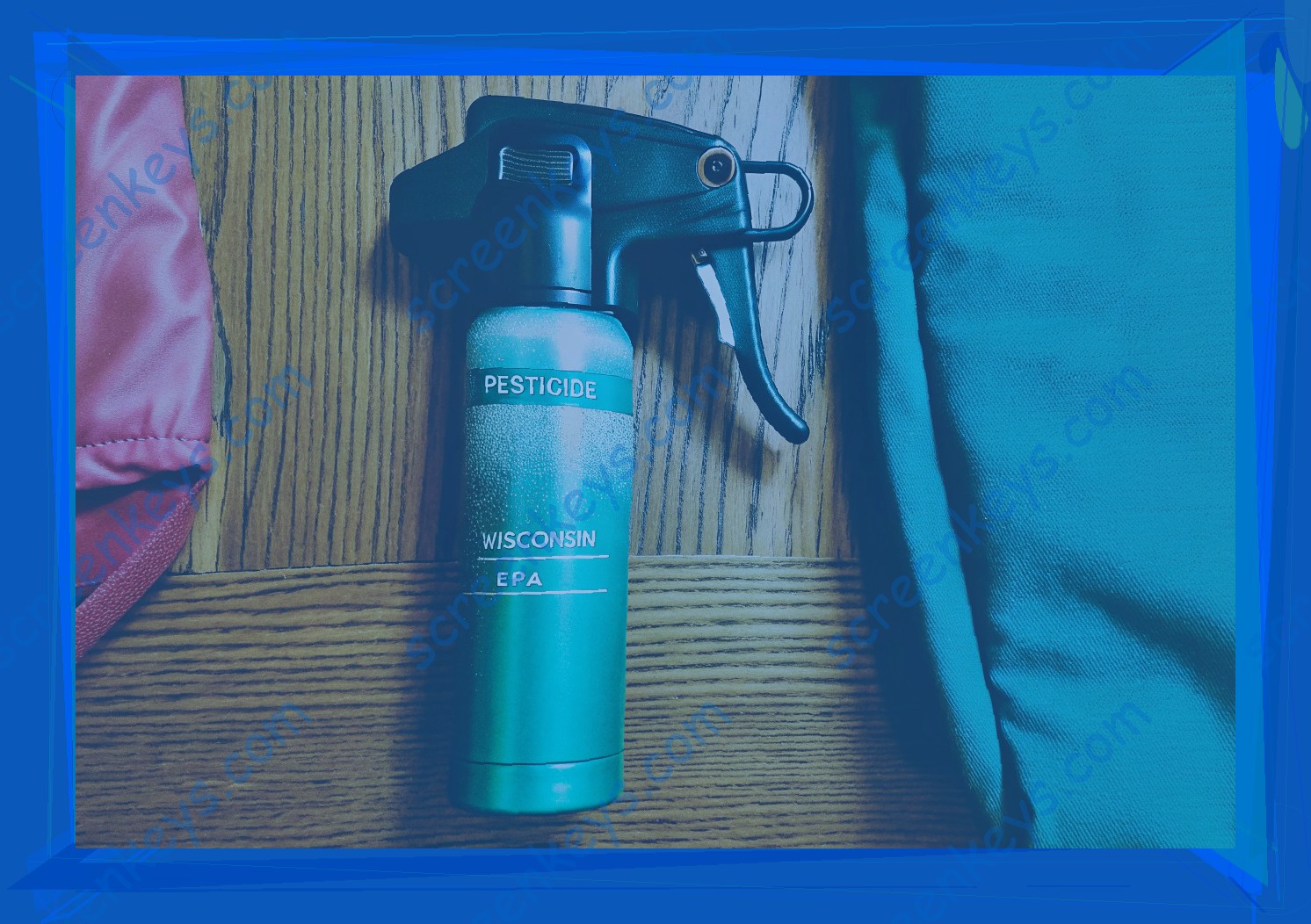Pepper Spray Use In Wisconsin: An Overview
Like many states, Wisconsin does not have any set laws or regulations specifically prohibiting or controlling the use of pepper spray. This is probably due to the fact that pepper spray is used as both a self-defense weapon and bear deterrent. With that said, there are some restrictions. First and foremost, an individual must be at least 18 years of age to carry pepper spray in the state of Wisconsin. As with all weapons, you must not use pepper spray for purposes other than self-defense. In short, there needs to be an opportunity of threat, which requires the use of pepper spray to protect yourself.
It is important to realize that although no specific pepper spray laws exist, if you use pepper spray as an offensive weapon, you will be charged with a crime, such as an assault and/or battery . Also, unlike the roughly 20 states that allow citizens to use any form of self-defense methods to protect themselves from their abuser, Wisconsin limits self-defense methods to those that would force police action if used. (This excludes physical force such as taps, nudges, jabs etc). If you need to use physical force, you should use physical force. However, using deadly force in self-defense will be considered justified only where a person reasonably believes that she or he is in imminent danger of death or great bodily harm; or serious bodily injury, which could result in hospitalization, permanent injury, or disfigurement. As such, never consider a bear spray product (which is a type of "pepper spray") as an option for self-defense against a human, especially if you live in an urban area.

Wisconsin State Laws Regarding Pepper Spray
Wisconsin does not have specific laws on the books prohibiting, regulating or controlling the sale and use of pepper spray in general. Wisconsin announces its requirements for the use of pepper spray on its Department of Justice website. WISCONSIN DOES ALLOW for the purchase of pepper spray products to persons who are over the age of 18 and are US Citizens or not a convicted felon. The state advises that pepper spray products sold to consumers must be registered as a "pesticide product" by the Department of Agriculture, Trade and Consumer Protection (DATCP). The product must also be registered with and issued an approved label by the United States Environmental Protection Agency (EPA) as a "pesticide product". This means that legitimate pepper spray offered for sale in Wisconsin is generally in a pre-approved container and cannot be changed by the retailer. In accordance with the EPA issued approval, users are required to take class instruction on the use of pepper spray. Therefore, as long as all other requirements are met, and when applicable, consumers will still need to taken a class to understand how the pepper spray they possess actually works and what the limitations of the product are. Pepper spray products must contain 2-10% oleoresin capsicum (OC). In comparison, most bear spray comes in at around 8-12% OC and is formulated differently than products carried for personal use and self-defense. There is no restriction on the size or "strength" of OC percentage, however, there are restrictions on whether the canister must be "stream" or "spray" type canister.
The Legal Implications for Not Following the Law
Any use of pepper spray that involves intentional harm or aggression against an individual can be treated as a simple assault in the state of Wisconsin. This is a Class A misdemeanor, resulting in a fine of up to $10,000 and/or imprisonment not to exceed nine months.
Unfortunately, there are a number of situations in which the use of pepper spray might land you in legal trouble:
As you can see, there are as many circumstances under which you could face legal consequences for the misuse of pepper spray as there are instances in which using the spray is perfectly legal.
In addition to these example scenarios, it is also possible to face assault charges for using pepper spray in a manner that is deemed "reckless." It is entirely possible to be cornered by an attacker, then forced to use your pepper spray in order to escape. However, if the police or a judge determine that you used too much spray, or that you can escape without the use of the spray, because you used excessive force, you could be charged with assault.
What to Consider When Choosing a Pepper Spray in Wisconsin
Before purchasing pepper spray in Wisconsin, there are certain considerations that should be kept in mind. The most basic fact to understand is that it is legal to purchase and possess pepper spray in most circumstances. However, it is illegal to concealing carry pepper spray in the state of Wisconsin without a concealed carry license.
Unlike many other states, no background check or permit is required to purchase pepper spray in Wisconsin. This means that consumers can buy this self-defense tool at a variety of retail outlets . Examples of places where consumers may purchase pepper spray products include all forms of sporting goods stores, convenience stores, and online retailers.
The key is ensuring that the pepper spray product being purchased is a legal item. As mentioned above, some forms of pepper spray that have been altered are considered illegal items in Wisconsin, as are certain canisters of pepper spray products over 50 mL. A representative of the store, or any internet retailer, should be able to tell you whether or not that is the case.
Pepper Spray & Self-Defense: Us Freedom Law Group Explains
In the Badger State, residents have the right to defend themselves. This is codified in Sec. 939.48 sec. 1 of the Wisconsin Statutes. Under this law, a person may use "the right of self-defense or defense of others only when the circumstances would induce a reasonable person to believe that there was a substantial threat of death or great bodily harm to himself or herself or to another as described in sec. 939.22(26)." According to Sec. 939.22, subsection (26) defines "great bodily harm" as "bodily harm which creates a high probability of death or which causes serious permanent disfigurement, or which results in long-term loss or impairment of function of a bodily member or organ." In simple terms, the decision to use deadly force, with or without a weapon, is left to the reasonable person. If a reasonable person in the same situation believed there was an imminent threat of bodily harm, that person could justifiably take action. In Wisconsin, pepper spray is considered a dangerous weapon under Sec. 941.23 of the Statutes. It is lawful for you to carry pepper spray in public, but that does not mean you are free to use it in any situation. According to the Wisconsin State Legislature: "Whoever goes armed with a dangerous weapon concealed on his or her person or carries a concealed dangerous weapon in a vehicle, except as authorized in this section, is guilty of a Class A misdemeanor …" There are certain exceptions carved out for self-defense, law enforcement, or other specified purposes, but the general rule is you are not allowed to carry pepper spray on your person unless you are a police officer, are acting in self-defense, are using it for pest control, or carry a permit. Regarding the use of pepper spray and self-defense, the general rule still applies: Sufficient evidence must indicate that a reasonable person in the situation you faced would have acted as you did if confronted with the same threat. The reasonableness of your actions is up to the police, the prosecutor, the court system, and the jury to determine, should the issue be taken that far. If you are in self-defense mode, avoid any action that would be categorized as provoking or perpetuating a vicious cycle. If you used pepper spray on your neighbor who confronted you about residential noise in the form of loud music or television, you may have a hard time convincing the legal system this person was a valid threat. If someone wages verbal and emotional attacks on you, the typical course would be to walk away without engaging. If necessary, call the police. Calling the police means you took action to avoid physical violence, which could be key to your self-defense case buildup. When you brandish or use any weapon — including pepper spray — it can be assumed in the eyes of the law that you intended harm. Even in cases where you acted in self-defense, you may be held liable for the use of a non-lethal weapon. As such, you should only ever use pepper spray for self-defense. Never go looking for trouble, but exercise your right to protect yourself and your property if the need arises. Consult an attorney if you have any questions about the use of pepper spray to defend yourself from an attacker.
How Wisconsin Law Compares to Other States
Pepper spray laws in Wisconsin differ comparatively little from those of the states immediately to its north, south, east and west. In the southern state of Illinois, for example, residents are permitted to carry and use sprays as a defensive weapon but need only prove that they were carrying or using it "in defense of himself or herself." South of Wisconsin, too, Iowans need only show that they were threatened with bodily harm and were "using a reasonable degree of force" to protect themselves. In Iowa, while automatic dispensing devices similar to an aerosol spray can are legal, a person may not use "a high volume dispensing device which expels any irritating or asphyxiating gas at a velocity that would cause injury to a person, such as is commonly known as a fogger." To the east, in Michigan, self-defense spray is legal but criminals may not purchase it; there are limits on the types of substances that can be used , and there is a ban on any spray that is "capable of being fired in the manner of a projectile or rocket." Paradoxically, though, whereas Wisconsin’s pepper spray laws are clear cut, Michigan’s regulation is the most confusing of all the surrounding states.
As if to underscore this confusion, the state’s Department of State Police recently issued a bulletin to clarify what exactly is permissible in terms of self-defense spray. Using the broadest of terms, the bulletin states that "’self-defense spray’ means any chemical substance of natural or synthetic origin, or combination thereof, that is intended to be expelled from a device for personal defence purposes, and includes a device capable of firing such a substance." Reducing the confusing language, one Michigan firearms lawyer told me: "The key point is that it is not so much what is in the spray, but how it is deployed. Anything fired as a projectile is illegal."



